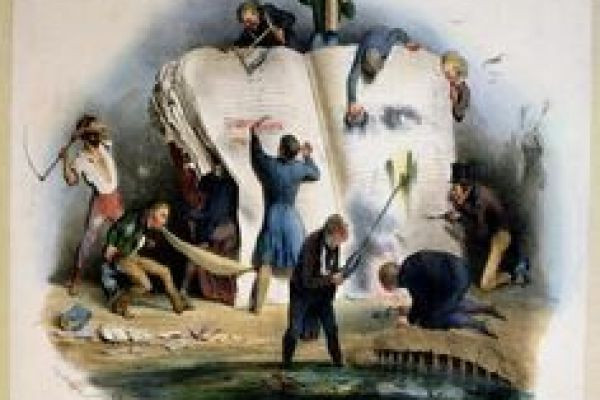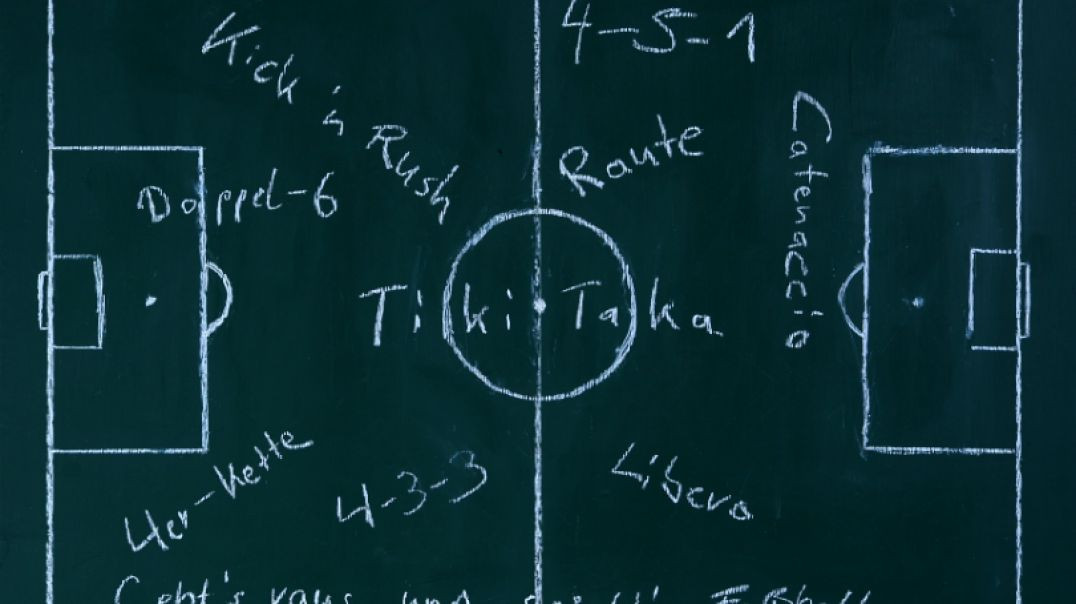Literary Criticism and Theory: Exploring Feminism, Psychoanalysis, Structuralism, and Deconstruction
Introduction
Literary criticism and theory form the backbone of scholarly analysis in literature, offering frameworks and methodologies for interpreting texts. By applying different critical approaches, scholars can uncover deeper meanings, explore underlying themes, and understand the socio-cultural contexts in which literary works are produced and received. Among the vast array of critical theories, four stand out for their profound influence on literary studies: feminism, psychoanalysis, structuralism, and deconstruction. Each of these approaches provides unique insights into literature, highlighting different aspects of texts and challenging readers to engage with literature in new and complex ways.
Feminism in Literary Criticism
Feminist literary criticism examines literature through the lens of gender, focusing on the ways in which texts reflect, reinforce, or challenge patriarchal norms and gender inequalities. It seeks to uncover the ways in which literature has historically marginalized or misrepresented women, as well as to recover and celebrate works by women writers that have been overlooked or undervalued in the literary canon.
The origins of feminist literary criticism can be traced back to the 19th and early 20th centuries, with the emergence of the first-wave feminist movement, which sought equal rights for women, particularly in the areas of suffrage and education. Virginia Woolf’s essay "A Room of One’s Own," published in 1929, is a seminal text in feminist criticism, arguing for the importance of financial independence and personal space for women writers to produce literature. Woolf’s work highlights the material and social conditions that have historically prevented women from achieving literary greatness and calls for a reexamination of the literary canon to include the voices of women.
The second wave of feminism, which gained momentum in the 1960s and 1970s, brought with it a more radical approach to literary criticism, challenging not only the exclusion of women from the literary canon but also the ways in which literature perpetuates gender stereotypes and upholds patriarchal power structures. Simone de Beauvoir’s "The Second Sex" and Kate Millett’s "Sexual Politics" are key texts from this period, critiquing the ways in which literature and culture construct and reinforce gender roles.
One of the primary concerns of feminist literary critics is the representation of women in literature. Feminist critics examine how female characters are portrayed, whether they conform to traditional gender roles, and how they are positioned in relation to male characters. They also explore the ways in which women’s experiences, desires, and voices are either silenced or foregrounded in literary texts. Judith Butler’s theory of gender performativity, which suggests that gender is not an inherent identity but rather a series of performed actions, has also been influential in feminist literary criticism, encouraging scholars to explore the fluidity and constructed nature of gender in literature.
Feminist criticism has also expanded to include intersections of gender with other social categories, such as race, class, sexuality, and disability, leading to more nuanced analyses of how literature reflects and shapes complex identities. Black feminist critics like bell hooks and Audre Lorde have highlighted the ways in which mainstream feminist criticism has often overlooked the experiences of women of color, advocating for a more inclusive and intersectional approach to literary analysis.
Psychoanalysis in Literary Criticism
Psychoanalytic literary criticism applies the theories of psychoanalysis, developed by Sigmund Freud and later expanded by theorists like Carl Jung and Jacques Lacan, to the interpretation of literary texts. This approach seeks to uncover the unconscious desires, fears, and conflicts that shape both the creation and interpretation of literature. Psychoanalytic criticism delves into the psychological dimensions of characters, authors, and readers, exploring how literature reflects and engages with the human psyche.
Freud’s theory of the Oedipus complex, the idea that children harbor unconscious desires for their opposite-sex parent and feelings of rivalry with their same-sex parent, has been widely applied to literary analysis. For example, Freud’s reading of Sophocles’ "Oedipus Rex" is central to his development of this concept, which has since been used to explore the family dynamics and unconscious motivations of characters in various literary works.
Psychoanalytic criticism also examines symbols, motifs, and themes in literature, interpreting them as manifestations of repressed desires or unresolved psychological conflicts. For instance, Freud’s concept of the id, ego, and superego the three components of the human psyche—has been used to analyze the internal struggles of literary characters, as seen in works like William Golding’s "Lord of the Flies," where the characters’ descent into savagery is interpreted as a struggle between their primal desires (the id) and the constraints of civilization (the superego).
Jacques Lacan, a key figure in the development of psychoanalytic theory after Freud, introduced the concept of the mirror stage, which describes how individuals develop a sense of self through the identification with their reflection in a mirror. Lacanian critics have applied this concept to literature, exploring how characters construct and negotiate their identities, often in relation to an external image or ideal.
Psychoanalytic criticism also extends to the interpretation of the author’s psyche, a practice known as psychobiography. This approach involves analyzing literary texts in relation to the author’s life, examining how their unconscious desires and conflicts may have influenced their writing. While this approach has been criticized for its speculative nature, it remains a popular method for exploring the psychological dimensions of literary creation.
Structuralism in Literary Criticism
Structuralism is a theoretical approach that emerged in the early 20th century, drawing on the work of linguist Ferdinand de Saussure. Structuralist critics analyze literature by examining the underlying structures that govern language and meaning. According to structuralism, meaning in literature is not inherent in the individual text but is generated by the relationships between elements within the text and the broader system of language and cultural codes.
Saussure’s concept of the sign comprising the signifier (the form of a word or symbol) and the signified (the concept it represents)—is foundational to structuralist analysis. Structuralists argue that meaning is created through the differences between signs, rather than through any inherent connection between the signifier and the signified. This idea has led structuralist critics to focus on the binary oppositions that structure texts, such as light/dark, good/evil, and male/female.
Claude Lévi-Strauss, an anthropologist and key figure in the development of structuralism, applied these ideas to the study of myths, arguing that all myths share a common structure based on binary oppositions. Literary critics have since used Lévi-Strauss’s theories to analyze the deep structures underlying literary texts, revealing the universal patterns and conventions that shape storytelling.
Structuralism also emphasizes the role of intertextuality the relationships between texts—in the creation of meaning. Structuralist critics examine how texts reference, echo, or challenge other texts within the literary tradition, highlighting the ways in which literature is a part of a broader system of cultural production. This approach shifts the focus away from the individual author’s intentions and towards the structures of language and culture that inform the creation and interpretation of texts.
While structuralism has been criticized for its focus on abstract structures at the expense of historical and social context, it has had a lasting impact on literary criticism, particularly in its emphasis on the systemic nature of meaning in literature.
Deconstruction in Literary Criticism
Deconstruction, a critical approach developed by Jacques Derrida in the 1960s, challenges the idea that texts have stable, fixed meanings. Instead, deconstructionists argue that meaning in literature is inherently unstable and constantly deferred, as language is full of ambiguities, contradictions, and tensions. Deconstruction involves taking apart the binary oppositions that structure texts, revealing how these oppositions are often arbitrary and how they undermine the very meanings they seek to establish.
Derrida’s concept of différance a term that plays on the dual meanings of “to differ” and “to defer”—is central to deconstruction. Différance suggests that meaning is always deferred in language, as the interpretation of a text relies on other signs, which in turn refer to other signs, creating an endless chain of signification. This idea challenges the notion that texts can convey a single, authoritative meaning, instead suggesting that texts are open to multiple interpretations and that meaning is always in flux.
Deconstructionists often focus on the margins or gaps in texts, examining what is left unsaid, omitted, or contradictory. By analyzing these elements, deconstructionists reveal how texts often subvert their own apparent meanings, exposing the inherent instability of language. For example, a deconstructive reading of William Shakespeare’s "Hamlet" might explore how the play’s exploration of madness, revenge, and mortality is fraught with contradictions and ambiguities, challenging any straightforward interpretation of the text.
Deconstruction has been influential in challenging traditional hierarchies in literary criticism, such as the distinction between high and low culture, or the separation between literary and non-literary texts. Deconstructionists argue that these distinctions are not natural or given but are constructed by cultural and ideological forces. By deconstructing these hierarchies, critics can reveal the power dynamics at play in the production and reception of literature.
While deconstruction has been criticized for its perceived nihilism and relativism, it has had a profound impact on literary criticism, particularly in its emphasis on the complexity and multiplicity of meaning in texts. Deconstruction has also influenced other critical approaches, such as poststructuralism and postmodernism.



